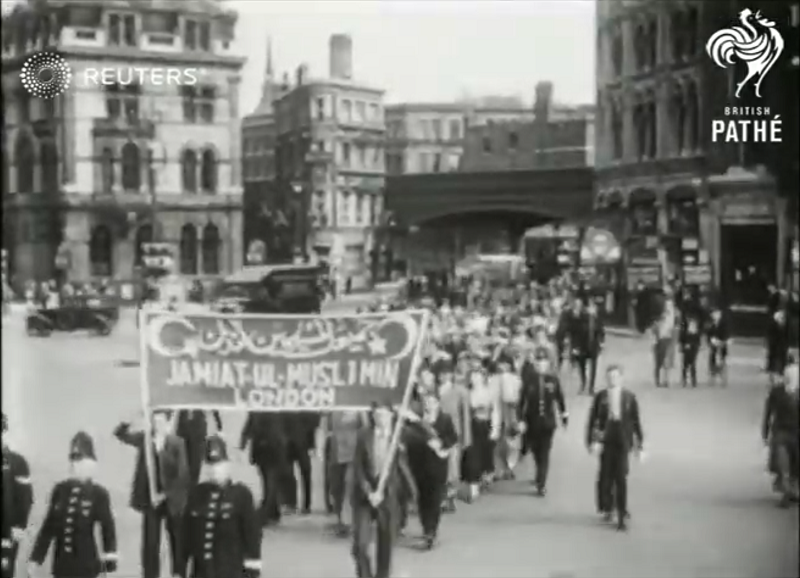Rex Krueger
Published 12 Oct 2022What to know before you get started with sharpening stones.
(more…)
October 15, 2022
Sharpening Stones: A Complete Beginner’s Guide
From perpetual motion machines to “Philosopher’s Stoves” (no, that’s not a misprint)
In the latest Age of Invention newsletter, Anton Howes digs deeper into the question of why it took so long for the steam engine to be invented:
As I hinted in Part II, there were still more wonders to issue from [Cornelis] Drebbel’s workshop — many of them building on the same principles as his perpetual motion machine.
So it’s worth a very brief recap of how that device worked. Drebbel had improved upon an ancient experiment involving an inverted flask in water: that is, to heat the base of a long-necked glass flask and place it mouth-first into a bucket of water. The heated air trapped inside the flask would bubble out, and as the remaining air cooled, the water of the bucket would rise up into the flask.
The inverted flask experiment. The air bubbles out on the left. As the remaining trapped air cools, on the right, the water rises up the flask (in fact pushed up by the pressure of the atmosphere).Drebbel’s big breakthrough was to notice that once the water was already sucked into the flask, it would continue to rise and fall even when it wasn’t being heated or cooled on purpose — movements that were the result of natural changes to atmospheric pressure and temperature.
From this continued movement — to his mind, a harnessing of the perpetual movement of the universe itself — Drebbel then constructed a machine that seemed to show the ebb and flow of the tides, as the liquid inside it rose and fell between the cold of night and the heat of day. He also exploited that same rise and fall of the liquid in order to rewind clockwork that continually showed the time, day, months, and years, along with the cycle of the zodiac and the phases of the moon.
Few have now heard of Drebbel’s perpetual motion machine, but noticing that same rise and fall of the liquid in response to changes in the weather would also serve as the basis for the invention of the thermometer and barometer. Or, more accurately, to the reinterpretation of the ancient inverted flask experiment as a device capable of measuring both temperature and atmospheric pressure. (The two different applications were not disentangled and isolated until later, as we’ll see below, and so in modern terminology the initial device is often referred to as an air thermoscope.)
[…]
For alchemists like Drebbel, being able to control the temperature of furnaces and ovens was a valuable prize, because so much of their skill in manipulating metals and minerals depended upon it. The alchemist’s art — the intangible, tacit skill built up over years of experience — was one of sensitivity to heat, being able to judge, by feel and by look, the varying intensities of flame, and then to manipulate it so as to keep it at a constant level. The art was known as pyronomia, or as regimen ignis — the governing of fire.
At some point before 1624, Drebbel worked out that he could exploit the inverted flask experiment to radically improve furnaces. He did this in two ways. One was simply to affix a mercury thermometer to the furnace, to indicate its heat (mercury, with a higher boiling point, would be less liable than water to simply evaporate away). But the other, and more ingenious way, was to create a feedback mechanism to control the oven’s heat automatically. Drebbel placed a cork to float atop the mercury in yet another thermometer, which as it rose or fell would then cover or uncover the furnace’s air supply. He could thus choose a desired heat, and then let the oven do the rest. If it grew too hot, the air supply would be restricted. If it grew too cold, it would be increased. Drebbel had invented the thermostat, and perhaps one of the first widely-applied practical feedback control mechanisms.
Drebbelian self-regulating ovens, or Philosopher’s Stoves, spread beyond England, to be adopted in France, the Netherlands, Germany, and even across the ocean in New England — they were a major source of business for the husbands of Drebbel’s daughters, the brothers Abraham and Johannes Sibertus Kuffler, to whom he passed many of his secrets. Drebbel even applied its thermostatic principles to artificially incubating eggs, for which maintaining a constant temperature was essential. To give an idea of how big a deal this was, Francis Bacon filled his techno-utopian vision of a New Atlantis with “furnaces of great diversities, and that keep great diversity of heats; fierce and quick; strong and constant; soft and mild; blown, quiet; dry, moist; and the like”, some of which, like the incubator, were able to provide even the gentle heat of animal bodies. Drebbel, in Bacon’s lifetime, was thus producing the stuff of science fiction. He was, as one admirer termed him, a true Mysteriarch.
And the Mysteriarch did not stop there. Just before his death in 1633 he was working on improving the stoves, making them more efficient, reducing the need for people to attend the fire, and reducing their smoke. They could thus be applied to drying hops, malt, fruit, spices, and gunpowder, heating rooms in houses, and distilling fresh water from sea water. His heirs, the Kufflers, even made the stoves portable enough to be used for baking the bread for armies — they were allegedly used by Frederick Henry, Prince of Orange, in his various successful campaigns against Spain. Both the portable ovens and the seawater distilling machines were apparently used in the 1650s aboard ships headed for the Indian Ocean.
By the 1620s, then, many of the key elements for a steam engine were already coming into fairly widespread use. Scientists across Europe, inspired by Drebbel’s perpetual motion and Santorio’s thermometer, were eagerly pursuing the possibilities from expanding and contracting gases. And Drebbel had invented a widely-used thermostatic feedback system — a general concept that would later prove extremely useful in making steam engines practicable. Feedback systems and safety valves would come to regulate the movements of engines and reduce the risks of them overheating and exploding.
An Israeli LMG, Part I: The .303 Dror
Forgotten Weapons
Published 6 Jun 2022
(more…)
QotD: Spartan strategic and diplomatic blunders during and after the Peloponnesian War
… we have already noted that year after year Sparta would invade Attica with hoplite armies which were singularly incapable of actually achieving the strategic objective of bringing Athens to the negotiating table. The problem here is summed up in the concept of a strategic center of gravity – as Clausewitz says (drink!), it is the source of an enemy’s strength and thus the key element of an enemy’s force which must be targeted to achieve victory. The obvious center of gravity for the Athenians was their maritime empire, which provided the tribute that funded their war effort. The Corinthians saw this before the war even started. So long as the tribute rolled in, Athens could fight forever.
It takes Sparta years of fighting Athens to finally recognize this – an effort in 413/2 to support revolts from Athens is pathetically slow and under-funded (Thuc. 8, basically all of it) and it isn’t until Sparta not only allies with Persia but entrusts its fleet to the mothax Lysander that they seriously set about a strategy of cutting Athens’ naval supply lines. This isn’t a one-time affair: Sparta’s inability to coordinate ends and means shows up again in the Corinthian war (e.g. in Argos, Xen. Hell. 4.7), where they are pulled into a debilitating defensive stalemate because the Corinthians won’t come out and fight and the Spartans have no other answers.
This is compounded by the fact that the Spartans are awful at diplomacy. Sparta could be the lynch-pin of a decent alliance of cities when the outside threat was obvious and severe – as in the case of the Persian wars, or the expansion of Athenian hegemony. But otherwise, Sparta consistently and repeatedly alienates allies to its own peril. Spartan leadership at the end of the Persian wars had been so arrogant and hamfisted that leadership of the anti-Persian alliance passed to Athens (creating what would become the Athenian Empire, so Spartan diplomatic incompetence led directly to the titanic conflict of the late fifth century). And to be clear, Athenian diplomacy does not score high marks either, but it is still a far sight better than the Spartans (Greek diplomacy, in general was awful – rude, arrogant and focused on compulsion rather than suasion – so it is telling that the Spartans are very bad at it, even by Greek standards).
In 461, Spartan arrogance towards an Athenian military expedition sent to help Sparta against a helot revolt utterly discredited the pro-Sparta political voices at Athens and in turn set the two states on a collision course. Sparta had ejected the friendly army so roughly that it had created an outrage in Athens.
During the Peloponnesian War, Spartan diplomatic miscalculations repeatedly hurt their cause, as with the destruction of Plataea – the symbol of Greek resistence to Persia. Later on in the war, terrible Spartan diplomacy repeatedly derails efforts to work with the Persian satrap Tissaphernes, who has the money and resources Sparta needs to defeat Athens; it is the decidedly un-Spartan actions first of Alcibiades (then being a traitor to Athens) and later Lysander who rescue the alliance. After the end of the Peloponnesian War, Sparta promptly alienated its key allies, ending up at war first with Corinth (the Corinthian War (394-386) and then with Thebes (378-371), both of which had been stalwarts of Sparta’s anti-Athenian efforts (Corinth was itself a member of the Peloponnesian League). This led directly to the loss of Messenia and the breaking of Spartan power.
In short, whenever Sparta was confronted with a problem – superior enemy forces, maritime enemies, fortified enemy positions, the need to keep alliances together, financial demands – any problem which could not be solved by frontal attack with hoplites, the traditional Spartan leadership alienated friends and flailed uselessly. Often the Spartans attempted – as with Corinth and later Thebes – to compel friendship with hoplite armies, which worked exactly as poorly as you might imagine.
It is hard not to see both the strategic inflexibility of Sparta and the arrogant diplomatic incompetence of the spartiates as a direct consequence of the agoge‘s rigid system of indoctrination. Young Spartiates, after all, were taught that anyone with a craft was to be despised and that anyone who had to work was lesser than they – is it any surprise that they disdained the sort of warfare and statecraft that depended on such men? The agoge – as we are told – enforced its rules with copious violence and was designed to create and encourage strict, violent hierarchies to encourage obedience. It can be no surprise that men indoctrinated in such a system – and thus liable to attempt to use its methods abroad – made poor diplomats and strategic thinkers abroad.
Bret Devereaux, “Collections: This. Isn’t. Sparta. Part VII: Spartan Ends”, A Collection of Unmitigated Pedantry, 2019-09-27.
October 14, 2022
That time that H.G. Wells fell afoul of Muslim sentiments
In the New English Review, Esmerelda Weatherwax recounts an incident from the 1930s where Muslim protestors took to the streets of London in reaction to a recent Hindustani translation of H.G. Wells’ A Short History of the World:

Screen capture of the 1938 Muslim protest march in London from a British Pathé newsreel – https://www.youtube.com/watch?v=ADausiEe4pM
… my husband was at the Museum of London and spotted a very brief mention of this protest in 1938 on a list of 20th century London events. I did some research.
The book they objected to was HG Wells’ A Short History of the World. This was originally published in 1922 but in 1938 an abridged version was tranlated into Hindustani and published in India. His observations about the Prophet Mohammed did not find favour with Indian Muslims (and as you know pre-partition the area called India covered what is now Pakistan and Bangladesh). There were protest meetings in Calcutta and Mumbai (then transliterated as Bombay) and the consignments of the books that WH Smith the booksellers sent to Hyderabad mysteriously never arrived. Investigation showed that the Sind government banned its import. Protests spread to east Africa and were reported in Nairobi and Mombasa.
The paragraphs concerned said “He seems to have been a man compounded of very considerable vanity, greed, cunning, self-deception, and quite sincere religious passion”. Wells concludes, not unfavourably, that “when the manifest defects of Muhammad’s life and writing have been allowed for, there remains in Islam, this faith he imposed upon the Arabs, much power and inspiration”.
There had been a number of Muslims living in east London for some years, sailors who came through the docks, retired servants, some professional men and in 1934 they formed a charitable association for the promotion of Islam called Jamiat-ul-Muslimin; they met on Fridays at a hall in Commercial Road.
On Friday 12th August 1938 a copy of A Short History of the World was, as apparently reported in the Manchester Guardian the following day “ceremoniously burned”. The main Nazi book burnings were over 5 years previously but I can’t but be reminded of them. I can’t access the Guardian on-line archive for 1938 as I don’t have a subscription, but I have no reason to doubt what they reported.
A few days later Dr Mohammed Buksh of Jamiat-ul-Muslimin attended upon Sir Feroz Khan Noon, the high commissioner for India. Sir Feroz tried to explain that in Britain we could (or could then) freely criticise Christianity, the Royal family and government as a right. He reminded Dr Buksh that Muslims were “a very small minority in England, and it would do them no good to try and be mischievous in this country, no matter how genuine their grievances were”.
Nazis Suck at Sabotage – WW2 – Spies & Ties 23
World War Two
Published 13 Oct 2022They say every masterpiece has its cheap copy. Well, the German Sicherheitsdienst are trying to copy the success of the Soviet Partisans. With Walter Schellenberg, Heinrich Himmler, and Reinhard Heydrich in charge, you know it’s going to be a bloody affair.
(more…)
The commercial failure of Bros
With the movie failing to find much of an audience, the director and lead actor blame homophobia, because that’s far easier than accepting that rom-com movies are quaint, out-of-date, and stale in the modern hookup culture:
In the case of movies, one might respond to Stoller and Eichner by saying that entertainers are supposed to provide products that the viewing public wishes to see. It might surprise the team behind the didactic Bros that many of us watch movies to be entertained, not to be preached at, seeing them as brief, trivial moments of escape from the drudge of daily life, not an opportunity to (as the Victorians would have said) “improve” ourselves. But even though it has proved an abject commercial failure, the movie is nonetheless instructive in how our culture is changing. And both its production values and its failure are likely signs not of the LGBTQ movement’s influence stalling, but of its remarkable success.
[…]
Romance depends upon sex being costly. It was the difficulty of obtaining sex, the need for that delicate, complicated, and unpredictable interpersonal dance between two people, that was the very essence of what it was to be romantic. In a world where sex is not simply casual but remarkably cheap, the notion of romance is dead. Romance requires a particular kind of culture in order to make sense. A world of hookups, one-night stands, and all-pervasive pornography is not one that gives people the cultural grammar and syntax to understand it. That the movie apparently contains scenes of sex and nudity is hardly exceptional today. But that’s the point: A world where sex and nudity are displayed on the screen is not a world where romance has any place. Just as explicit rap lyrics reflect a world antithetical to that in which Frank Sinatra sang “Fly me to the moon”, so the endless tedium of explicit sex on celluloid is not that of Audrey Hepburn and Fred Astaire in Funny Face. Romance depends upon social codes of restraint and modesty, and upon the idea that sex is not something casual but something special, even sacred.
The same point can be made with reference to what we might call romantic tragedy. Take Tolstoy’s Anna Karenina. The story simply could not be set in modern America because Anna, married to the tedious Karenin but falling in love with the dashing Vronsky, would simply file for divorce and move out of Karenin’s house and into that of her lover. The tragic romance is rooted in the impossibility of Anna’s situation, given the way sex is seen through the powerful moral lens of nineteenth-century Russian society. The genre of romantic tragedy depends upon a specific moral framework. So does the genre of romantic comedy. But the sexual revolution has obliterated that moral framework.
To return to Bros, it is frankly as ridiculous to make a rom-com in the twenty-first century as it is to hire a cast and crew on the basis of modern categories of identity rather than professional competence. And, while the Bros team might regard its box office failure as discouraging, it might just as easily be evidence of the triumph of the LGBTQ movement in wider society as it is of a residual resistance to the same. Please don’t blame homophobia for your commercial failure. Romance is dead. And you helped to kill it.
When Potatoes were Illegal
Tasting History with Max Miller
Published 7 Jun 2022
(more…)
QotD: High school
Those of us on the back nine of our lives remember high school as a process of differential diagnosis. You try on a certain set of social roles to see which, if any, fit. You don’t go out for the baseball team because it’s the first step to making the Majors. Really, you might not even like playing baseball all that much. You go out for the baseball team because you want to be a Jock. If you make the team, you’re a Jock for a while, leading the Jock life and learning its lessons. If you don’t make the team, you go find something else — the Debate Club, heavy metal music, whatever — and learn the lessons those lifestyles teach.
You didn’t understand this back then, of course, but your parents did, and — crucially — your teachers did. If you wanted to be a Metalhead this semester, they’d treat you like a Metalhead, complete with the “Why are you wasting your potential (and ruining your ears) with that godawful noise?” They’d make a show of having a Very Serious Conversation with you about the dangers of drugs and satanism … knowing full well that you weren’t on drugs, weren’t sacrificing virgins to Moloch (if for no other reason than you didn’t actually know any girls), and would, in fact, come back as a clean-scrubbed Preppie after summer break your junior year.
The key word in “adolescent rebellion”, after all, is adolescent. All of that stuff was just practice. If it proceeded in the normal way, what going through all the permutations of high school identity taught you was:
- you’re a fairly normal person; and
- that’s ok.
In other words, you are not a collection of externals — clothes, music, hairstyles. You’re you. The externals can change, fairly radically — remember that one summer you broke your nose trying to be a skater? — but there’s a core in there that’s you. Which is great, because it means that you are just a person who takes customer service calls in a cubicle farm to pay the bills; they’re not going to put “Here lies Bill, a Customer Service Representative” on your tombstone.
Severian, “The Basic College Girl”, Rotten Chestnuts, 2019-07-24.
October 13, 2022
The Nazis’ Justification for the Genocide – October 9, 1943 – WAH 081
World War Two
Published 12 Oct 2022This week the Nazis go on the record about their genocide of the Jews. Meanwhile the Jews in Denmark are coming closer to safety, and the Roman Jews are again at peril.
(more…)
Are we to believe that Prime Minister Trudeau lied about the Freedom Convoy? To the fainting couches!
Some recent revelations show that Prime Minister Justin Trudeau was … less than perfectly honest … about the intelligence reports he was receiving about the Freedom Convoy:
It has now been revealed that statements by Prime Minister Justin Trudeau associating the “Freedom Convoy” with Nazism were unfounded, according to Canadian Security Intelligence Service (CSIS) documents published by Blacklock’s Reporter.
On January 31, 2022, Trudeau conflated support for the “Freedom Convoy” with “Nazi symbolism” in his first press conference addressing the massive anti-mandate demonstration that captured the world’s attention in the first two months of the year.
Trudeau also stated at the time that he would not meet with the truckers because of their supposed “hateful rhetoric” and “violence towards citizens”, behavior he consistently implied was a core aspect of the movement’s strategy to put an end to COVID jab mandates nationwide.
Contradicting Trudeau’s characterization, the now-revealed documentation from CSIS, dated February 2 – just two days after the prime minister’s initial comments – explain that the protest was predominantly comprised of “patriotic Canadians standing up for their democratic rights” and not of those holding extremists beliefs.
Detailing how the presence of bigoted imagery is “not unique” when it comes to large-scale protests, CSIS also noted that the presence of swastikas on some flags was “not necessarily to self-identify as Nazis but to imply the Prime Minister and federal government are acting like Nazis by imposing public health mandates”.
It was therefore the conclusion of CSIS that while some attendees had manually added swastikas to flags, it was to associate Trudeau with Nazism as a statement of their opposition to the ideology.
Two weeks after the CSIS report was produced, Trudeau doubled-down on his conflation of the Freedom Convoy with Nazism, accusing the Conservative Party of Canada, and in particular Jewish MP Melissa Lantsmann, of standing “with people who wave swastikas”.
How to Make a Spatula | Paul Sellers
Paul Sellers
Published 23 May 2022It’s a small project but not to be despised. Paul would start anyone new to woodworking with this simple and straightforward kitchen utensil simply because of some of the techniques you will use for many years to come.
Whether you later choose to make a kayak or a guitar neck, a three-legged stool, or a tool handle, everything taught in this wooden spatula, together with the tools, will be the same techniques.
It’s a win-win project, and Paul has used this with hundreds upon hundreds of his students through the years.
——————-
(more…)
QotD: “Russia is a nation built for tank warfare”
Some nations possess very large numbers of tanks indeed — others barely any. Russia, China and North Korea are some of the worlds largest tank fleet operators, with thousands of tanks listed on their order of battle. Russia is a nation built for tank warfare — large open borders, and endless steppes that have over the last century played host to some of the biggest armoured battles ever seen. Having visited the Kursk salient many years ago, Humphrey can personally attest to the sheer size of the Eastern Front, and how a militarized society can make good use of armour.
Russia also benefits from an outstanding rail network able to quickly move tanks and other heavy elements of military power such as APCs and self-propelled guns around easily, and has the space and reserves of conscript manpower from previous generations to draw on to crew its simple but effective designs, such as the T64 and T72.
This is underpinned by a national philosophy which is best summed up as “don’t throw away any military asset that, no matter how old it is, could be used to kill an invader”. There are storehouses across Russia full of elderly tanks that with a bit of TLC could, probably function as a last gasp capability. Russia regularly exercises its armoured capability, mobilising forces and moving them around the country to test readiness against the theoretical threat of a NATO invasion.
Russia then is a nation intended for operating tanks, but only when supported by a logistics chain that can support the front. Start moving away from the Russian landmass and their ability to sustain a force at any distances is quickly called into doubt. While Russia may “rank” as the largest tank operator in the world, much of this is only a threat to any nation foolish enough to invade Russia in the first place.
Sir Humphrey, “Tanks for nothing — Why it does not matter if the British Army has fewer tanks than Cambodia”, Thin Pinstriped Line, 2019-04-24.
October 12, 2022
Medically assisted suicide in Canada
In Common Sense, Rupa Subramanya discusses how quickly MAID (Medical Assistance in Death) became a commonality in Canada:
When we think of assisted suicide or euthanasia, we imagine a limited number of elderly people with late-stage cancer or advanced ALS in severe pain. The argument for helping them die is clear: Death is imminent. Why should they be forced to suffer?
In 2015, Canada’s Supreme Court ruled that assisted suicide was constitutional. In June 2016, Parliament passed Bill C-14, otherwise known as the Medical Assistance in Dying Act. MAiD was now the law of the land. Anyone who could show that their death was “reasonably foreseeable” was eligible. In this respect, Canada was hardly alone: The Netherlands, Switzerland, Belgium, Spain, Australia, and New Zealand, among others, allow assisted suicide. So do ten states in the U.S.
In 2017, the first full year in which MAiD, which is administered by provincial governments, was in operation, 2,838 people opted for assisted suicide, according to a government report. By 2021, that figure had jumped to 10,064 — accounting for more than 3 percent of all deaths in Canada that year.
There have been a total of 31,664 MAiD deaths and the large majority of those people were 65 to 80 when they died. In 2017, only 34 MAiD deaths were in the 18- to 45-year-old category. In 2018, that figure rose to at least 49. In 2019, it was 103; in 2020, 118; and in 2021, 139.
Today, thousands of people who could live for many years are applying — successfully — to kill themselves.
Indeed, in some Canadian provinces nearly 5 percent of deaths are MAiD deaths. In 2021, the province of Quebec reported that 4.7 percent of deaths in the province were due to MAiD; in British Columbia, the number was 4.8 percent. Progressive Vancouver Island is unofficially known as the “assisted-death capital of the world”, doctors told me.
Why the dramatic increase? Over the past few years, doctors have taken an increasingly liberal view when it comes to defining “reasonably foreseeable” death. Then, last year, the government amended the original legislation, stating that one could apply for MAiD even if one’s death were not reasonably foreseeable. This second track of applicants simply had to show that they had a condition that was “intolerable to them” and could not “be relieved under conditions that they consider acceptable”. This included applicants like Margaret Marsilla’s son, Kiano.
In 2023, those numbers are almost certain to rise.
Next March, the government is scheduled to expand the pool of eligible suicide-seekers to include the mentally ill and “mature minors”. According to Canada’s Department of Justice, parents are generally “entitled to make treatment decisions on their children’s behalf. The mature minor doctrine, however, allows children deemed sufficiently mature to make their own treatment decisions.” (The federal government does not define “mature”, nor does it specify who determines whether one is mature. On top of that, the doctrine varies from one province to another.)
Dr. Dawn Davies, a palliative care physician who supported MAiD when it was first conceived, said she had “tons of worries” about where this might lead. She could imagine kids with personality disorders or other mental health issues saying they wanted to die. “Some of them will mean it, some of them won’t,” she said. “And we won’t necessarily be able to discern who is who.”
Hugh Scher, an attorney advising Margaret Marsilla, told me: “While other countries have explored extending assisted suicide to minors, those governments have insisted on substantial safeguards, including parental notification and consent. Canada is poised to become the most permissive euthanasia regime in the world, including for minors and people with only psychiatric illness, having already removed the foreseeability of death or terminal illness as an essential condition to access euthanasia or assisted suicide.”
History’s Real Macbeth
Tasting History with Max Miller
Published 11 Oct 2022
(more…)







